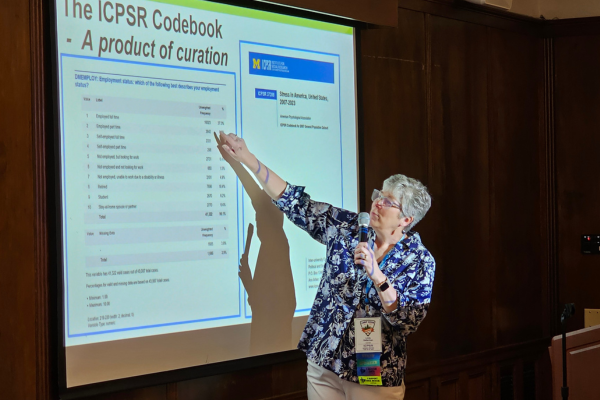Teaching & Learning
Supporting Educators and Students on their Data Journeys
From step-by-step guides to interactive tools and training, we’ve gathered everything you need to inspire curiosity and empower students to explore real-world data. Let’s make learning with data exciting and impactful—together!
Looking for information on the Summer Program? Read about the classes and workshops they offer.

Find & Use Data
Explore ICPSR’s rich data library with powerful search tools, filters, and curated collections to quickly find datasets that meet your needs.

Teach with Data
Bring content to life by adding data to your courses. Enhance learning with ready-to-use exercises and tips for integrating real data into your classroom.

Build Your Data Skills
Grow your skills with beginner-friendly guides on reading articles, analyzing data, choosing and interpreting statistical tests, citing, and more.

Additional Resources
Get answers through fun #NoStupidQuestions videos, explore learning modules, and enter ICPSR’s data storytelling scholarship.